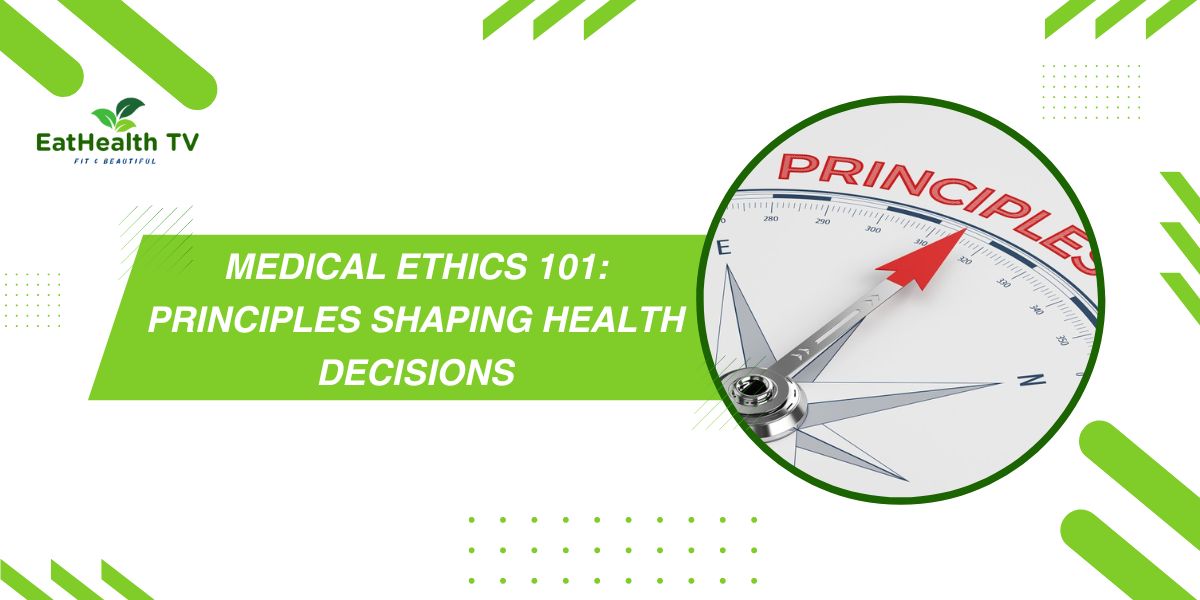Medical Ethics 101: Principles Shaping Health Decisions
Illuminating the Ethical Imperatives in Healthcare Decision-Making

Medical Ethics 101: Understanding the Principles Shaping Health Decisions
In the realm of healthcare, ethical considerations play a crucial role in guiding decision-making and shaping the delivery of medical services. Medical ethics encompasses a set of principles and values that govern the conduct of healthcare professionals, ensuring that patient care is provided with integrity, compassion, and respect for human dignity. In this comprehensive guide, we will delve into the fundamentals of medical ethics, exploring the key principles that underpin ethical decision-making in healthcare settings.
Whether you’re a 12th-grade student embarking on a journey into the field of medicine or an experienced healthcare practitioner seeking to deepen your understanding of ethical principles, this article will serve as a valuable resource in navigating the complex terrain of medical ethics. Just as we know Plant-Based Diets and Ethical Health Choices
Understanding Medical Ethics
Medical ethics is the branch of ethics that deals with moral issues and dilemmas arising in the practice of medicine. It provides a framework for addressing ethical questions and making decisions that uphold the highest standards of professionalism and integrity. At its core, medical ethics is guided by four fundamental principles:
- Beneficence: The principle of beneficence requires healthcare providers to act in the best interests of their patients, striving to promote their health and well-being. This involves taking proactive steps to prevent harm and maximize the potential benefits of medical interventions.
- Non-Maleficence: Non-maleficence dictates that healthcare professionals must refrain from causing harm to their patients, avoiding actions that may result in physical, psychological, or emotional harm. This principle emphasizes the importance of minimizing risks and prioritizing patient safety in medical practice.
- Autonomy: Autonomy upholds the right of patients to make informed decisions about their own medical care, free from coercion or undue influence. It recognizes the inherent dignity and self-determination of individuals, empowering them to participate in decisions regarding their health and well-being.
- Justice: Justice entails the fair and equitable distribution of healthcare resources, ensuring that all individuals have access to quality care regardless of their socio-economic status, race, or other factors. This principle guides efforts to address disparities in healthcare delivery and promote social equity in medical practice.
Practical Applications of Medical Ethics
In clinical practice, medical ethics informs a wide range of decisions and actions taken by healthcare professionals. Some practical applications of medical ethics include:
- Informed Consent: Healthcare providers must obtain informed consent from patients before performing medical procedures or treatments, ensuring that patients have a clear understanding of the risks, benefits, and alternatives involved.
- End-of-Life Care: Ethical considerations come into play when making decisions about end-of-life care, including the withholding or withdrawal of life-sustaining treatments, palliative care options, and discussions about advance directives.
- Confidentiality: Healthcare professionals are bound by ethical obligations to maintain patient confidentiality and privacy, safeguarding sensitive medical information from unauthorized disclosure.
- Resource Allocation: Ethical principles guide decisions regarding the allocation of scarce healthcare resources, such as organs for transplantation, ventilators during public health emergencies, and access to expensive medical treatments.
Navigating Ethical Dilemmas
Healthcare professionals often encounter ethical dilemmas that require careful consideration and deliberation. Some common ethical dilemmas include:
- Conflicts of Interest: Balancing professional obligations with personal interests or financial incentives, such as when prescribing medications or recommending treatments.
- Patient Confidentiality: Deciding when to breach patient confidentiality in cases where disclosure may be necessary to prevent harm to the patient or others.
- End-of-Life Decision-Making: Wrestling with complex decisions about end-of-life care, including the withdrawal of life support and the provision of palliative care.
- Resource Allocation: Addressing issues of resource scarcity and equitable distribution of healthcare resources, particularly in contexts of limited availability or competing demands.
Conclusion
Medical ethics serves as a guiding framework for healthcare professionals, ensuring that patient care is provided with integrity, compassion, and respect for human dignity. By adhering to principles of beneficence, non-maleficence, autonomy, and justice, healthcare providers can navigate the complex terrain of medical practice with professionalism and ethical integrity. As we continue to grapple with evolving healthcare challenges and ethical dilemmas, a solid understanding of medical ethics remains essential for delivering high-quality care and upholding the trust and confidence of patients and society at large.




